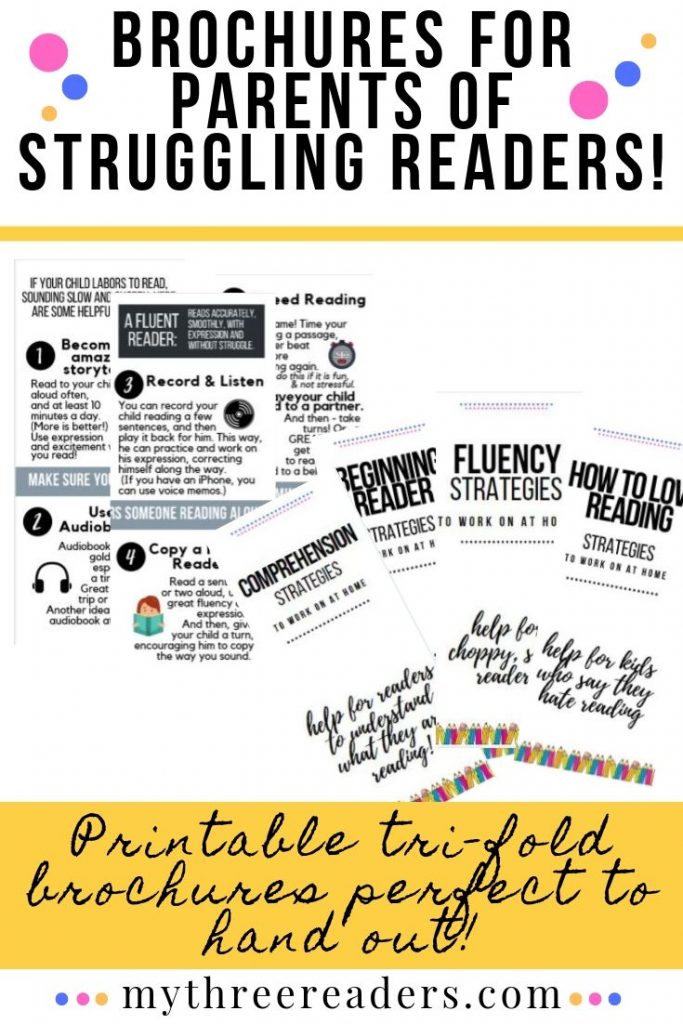The Science of Reading & The "Reading Wars" Explained to Parents & Homeschoolers
Parent, did you know that reading teachers and specialists have been "at war" with each other over how we should be teaching our kids to read?
Well - they are! As a former educator and parent of struggling readers (and as a mom who has experienced public, private, charter schools and homeschooling) I've been seeing this "war" rage on social media and in the schools.
Not to bring up another sticky subject, but you know how toxic and raging discussions on Facebook and social media are when it comes to vaccinations for kids? Well, it may interest you to know that reading teacher groups have been at each other for decades now about how to teach kids.
To any reading specialists reading, please keep in mind that this article is meant to be high level, and not to be bogged down with too much detail or words that only reading specialists might know. I would like to give a brief understanding of reading instruction to parents of very young children and to homeschool parents so they can be equipped with basic information to move forward in what will be the best for their child's reading instruction.
Parent, you need to be informed. And I am going to break it down for you here, so you can know what's happening and then choose to TEACH YOUR CHILD in the way that will help him be most successful in education.
What are the two sides of this "war"?
It's taken a different "look" over the years, and been named different things, but these are the two general camps of reading instruction ideology:
-
"Whole Language" (Sometimes referred to as"Balanced Literacy", although "Balanced Literacy" means something completely different to many teachers.)
In this approach, it is believed that children will learn to read primarily through exposure to books, with an emphasis on the meaning of the written word, as opposed to only the mechanics and building blocks of the written word (Ie: phonics).
Teachers of whole language may use a cueing system to teach reading. (For instance, looking at the associated picture on the page, or noting the context of the story to figure out a word).
One of the main pro-arguments that I've heard teachers of to back this approach is that they do incorporate phonics, but it is in "balance" with other components of reading and writing.
and
-
"Explicit, Systemic Phonics", or teaching based on findings in the "Science of Reading"
In this approach, teachers are heavily focused on grounding kids in a deep knowledge of phonics from the ground up, teaching it from the beginning until kids are well-versed in recognition of the principles of phonics to be able to read unrecognized words.
With this in mind, phonics and phonological awareness is not just "part of a balance of learning to read". Instead, it is the basis of reading instruction (otherwise known as decoding words). Other components of reading, (comprehension, fluency, etc.) are learned alongside a core of learning phonics mastery.
In other words, after teaching the building blocks of words, ie: phonics, children can then be able to manipulate text for advanced spelling and comprehension of text into adulthood.

Why are reading teachers & specialists angry about this?
Many teachers in schools were taught in college and have been teaching for many years now how to teach reading relying heavily on context, and visual cues, with yes, some phonics in the mix, and heavy sight word memorization.
Now, these reading specialists are being told that having skipped out on explicit phonics instruction for beginning readers has been detrimental to many thousands of students throughout the years, and now there is a country full of people who "can't read".
That would upset anyone, right? Some of these reading teachers are agreeing with the new (but not quite so new) "science of reading", and some are resistant but open to hearing and learning.
And some completely disagree. Mostly, from what I read, those who disagree contend that there is a balance to be met with all components of reading involved, and that children do indeed learn differently, and not all through systematic phonics instruction.
I'd like to point out here that the passion that stems from these arguments is a great indicator that reading teachers and specialists LOVE our kids! They want our children to become great readers. This IS something I see across the board in the groups I belong to.
Here's what I think.
Quite a few things need to be "working" in a person in order to become a proficient reader. (I'm not speaking as an expert here, by the way. I'm speaking as an experienced mom of struggling readers, as a former educator, and as the owner/writer of a blog who focuses on reading to give parents knowledge and support to teach readers.)
What needs to be working? Here are some of the basic skills and concepts children need to have: (And there are many more - such as rhyming, syllabication, etc., etc.)
- They need to know the letters of the alphabet. What they look like (upper and lower case), and what they sound like.
- They need to know how combinations of letters put together can sound. (phonics, and phonemic awareness)
- They need to know how those letters and combinations of letters look and sound within different kinds of words. (How they look/sound at the beginning of a word, in the middle of a word, and at the end of a word.) (phonemic manipulation)
- They need to know a few sight words that don't follow the normal patterns of phonics. (There aren't many! These are not the same as high frequency words, because many of those can be "sounded out" with phonics rules).
- They need to have heard the sounds of reading and storytelling over and over and over again from experienced readers.
- They need to move beyond decoding of words into the flow of a sentence with accuracy and expression (fluency).
- They need to be able to understand (comprehend) what they are reading, word by word, sentence by sentence, and then paragraph by paragraph.
You'll notice that several of these points are heavy on phonics. I do believe that the best way to approach reading instruction is with an emphasis on phonics, and to make sure that students have a mastery of phonics & phoneme knowledge/mastery.
However, I think "balance" is a fine word to use, because kids need a LOT of instruction outside and beyond phonics. (Just as long as phonics is not one "cog" of the wheel. It is in fact, necessary as a foundation at the beginning stages of reading for decoding. Some kids pick up on the phonics quickly, and some need extra work at it.)
Your child will land somewhere on this chart:

Strong Readers can have different beginnings:
- Some quickly pick up words by sight and begin reading memorized books because they've lived in a reading-rich environment.
They can recite lots of books because they know a ton of words already, and because of this, they might be able to pick up words by sight and understand phonics concepts early.
Because of their early reading, they gain confidence and move forward in difficulty quickly, ending up to be strong and proficient in academics.
- Other strong readers do not necessarily quickly pick up words easily, or read by an early age, but they grow up in a reading-rich environment. They also at some point gain a strong basis of phonics, with lots of continued practice and exposure to books and reading.
If you've been around children, or teaching children for any amount of time, you'll know and understand that children are different, and they learn and grow differently from one another.
And that is okay! However, they do all need some of the very basics to be able to grow and flourish in the world of reading.
So, which side of the "reading wars" should you be on?
If you are really interested, or if you have a child who you are teaching to read, you should read information from both sides of the aisle and draw your own conclusions.
But I will tell you this. During some point in your child's learning-to-read journey, and in the early years, you do need to help your child master phonics, systemically and explicitly.
You should listen to and watch your child, to determine what your child's needs are where she's at.
Look for gaps in reading instruction, and start there. If you have an older struggling child, you can still go back to fill in phonics and phonemic awareness gaps, read aloud to your child often, and get your child diagnosed for possible reading disabilities at any time.
Here are a few tips I believe that teachers from both sides of this "war" might give you:
(All of these are valid. It's okay to keep them all in mind when teaching your child to read.)

My child is in a school that emphasizes heavy picture, context cueing and sight words. What do I do?
There are several things you can do to be a proactive parent, and get your child started on the right track in reading. Here are a few:
- Meet and enter into a partnership with your child's teacher. Don't start your own "reading war" with your child's teacher. The goal is always collaboration for the better of your child.
- Understand that your child's teacher probably won't be able to switch directions just based upon your concerns, and issues. And she may be (is probably) bound by the requirements and curriculum of the school district, which brings me to number 3.
You may also be interested in reading: "11 Quick & Yummy Breakfast Foods to Help Struggling Readers"
- Be in contact with your child's principal, all the way up to the superintendent and/or school board. Not in an argumentative way, but again, in a collaborative spirit. Some good articles to introduce or e-mail to those at your child's school who pick curriculum are
- Supplement phonics at home.
- If you can't do this, consider changing schools, or homeschooling. Above all, just make sure that your child is actually learning to read, not just memorizing words to look like they are reading.
Check out these two different points of view that really helped me to see a couple different "sides" to this story.
This one is an article that "reignited" talk about the necessity of phonics and the science of reading.
And then you can also head to this article on This Reading Mama's website that gave me a glimpse into how some teachers view a balanced literacy approach. The most informative to me was the discussion held in the comments below the actual article.
I hope this sheds a little light for you about the "reading wars" that you may have heard about.
Glean the wisdom you can from all points of view, and then apply to make sure your child has the best foundation for learning to read that you can possibly provide.
Good luck on your journey, and enjoy reading with your child!



More articles to check out!



